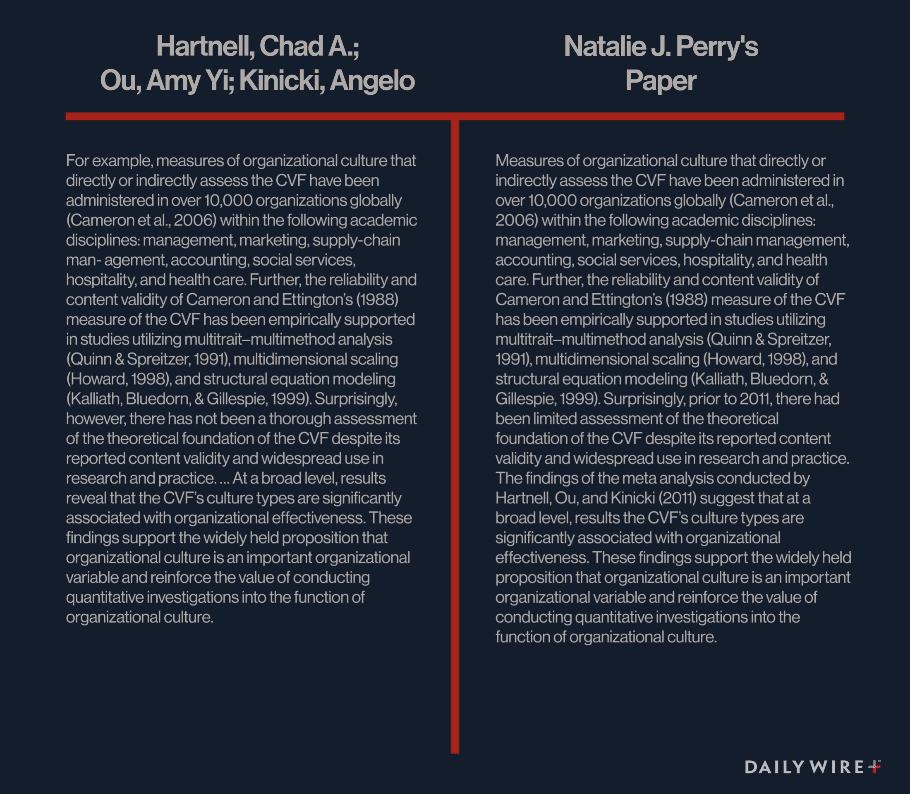Recent headlines about UCLA School of Medicine suggest that the institution has lost its focus. Instead of brushing up on organic chemistry, its students were subjected to lessons on “Indigenous womxn” and “two-spirits.” Future doctors had to take a class on “structural racism” and were led in a “Free Palestine” chant by a Hamas-praising guest speaker. The school made plans to segregate students by race for courses on left-wing ideology, and two of its psychiatry residents championed “revolutionary suicide.”
Why has the school charted this course? One reason is its commitment to diversity, equity, and inclusion ideology. UCLA has a DEI program called “Cultural North Star,” and at the medical school, it is led by Natalie J. Perry. Her official biography says her job is to “embed our aspirational Cultural North Stars [sic] value [sic] in our organizational DNA.” UCLA honored Perry last month for teaching students to “do what’s right,” saying her “empathy and radical listening” are to thank for her “success as an educator and a leader.”
According to a Daily Wire and City Journal investigation, however, Perry’s academic career is based on fraud. Perry has published a single paper, a 2014 Ph.D. dissertation at the University of Virginia about how colleges should create larger DEI programs. An analysis of the paper found it ridden with the worst sort of plagiarism, reproducing large swaths of text directly from several other authors, without citations. The scale of the plagiarism suggests that Perry lacks both ethics and competence and raises questions about academic programs that push DEI.
Perry’s dissertation lifted passages from ten other papers. In key portions of her text, she copied almost every paragraph from other sources without attribution. She fails even to mention at least four of the ten plagiarized papers anywhere in her dissertation.
Let’s review some examples.
The first three pages of Perry’s paper, “Faculty Perceptions of Diversity at a Highly Selective Research-Intensive University,” suggest that she did not even bother to read beyond the first page of papers from which she stole. Her dissertation’s second sentence reproduces verbatim part of a sentence on the first page of a paper by Adrianna Kezar, Peter Eckel, Melissa Contreras-McGavin, and Stephen John Quaye. Her third paragraph, without citation, lifts more than 100 words from the first page of a paper by Angela Locks, Sylvia Hurtado, Nicholas Bowman, and Leticia Oseguera.

Each colored portion of the below text was taken from a different author:

In some cases when Perry did include parenthetical citations, she wasn’t citing the papers whose text she had lifted. Instead, she simply reproduced the citations included in those stolen excerpts.

Take the above paragraph, which ends with “(Bernard, 2005; Bollag, 2005; Munoz, Jasis, Young, and McLaren, 2004; Williams, Nakashima, Kich, and Reginald, 1996).” Perry was not synthesizing those authors. Instead, the citation was part of Adalberto Aguirre and Ruben Martinez’s paper, which she copied without attribution.
A core part of Perry’s dissertation involved summarizing work done by professors Robert Quinn and John Rohrbaugh. Instead of citing them directly, however, Perry cribbed summaries from other academics. Perry copied and pasted almost all of a nearly thousand-word passage from a paper by Chad Hartnell, Amy Yi Ou, and Angelo Kinicki, without quoting or crediting the authors.

The rest of Perry’s analysis of Quinn and Rohrbaugh’s work is largely copied, unquoted and unattributed, from a 2003 paper by John Smart. Below are pages 13 and 14 of Perry’s paper, outlining its “Theoretical Framework,” with the italicized text coming directly from Smart:

In a section titled “Positioning Diversity Leadership in Higher Education,” Perry copies almost every sentence from one of several other papers. In no case does she credit the actual source:

Finally, in a section on organizational culture, Perry duplicates language from a variety of other authors:

Perry presented her paper as “qualitative” research because she chatted with what appear to be ten of her colleagues at the University of Virginia who sat on the faculty-retention taskforce and counted their musing as “data.” But when the paper gets to this section, where plagiarism wasn’t possible, Perry includes the following jumbled passage that includes a glaring spelling error:
The positionality of the participants informed the perspective on the origins of the commission. /in response to the needs of the varios [sic] stakeholders within the university, the commission addressed issues of diversity on the faculty, undergraduate, graduate, and university level.
The section of original text suggests that her plagiarism could be used to mask glaring academic deficiencies. Moreover, Perry in her references section fails to list some of the papers that she cites parenthetically in the body of the dissertation—a telltale sign that she had simply copied those citations from somewhere else. A legitimate academic field never would have found this dissertation plausible.
Perry and UCLA did not return requests for comment.
Entrepreneur Mark Cuban recently argued that DEI policies don’t necessarily lower an organization’s expectations. But for Harvard, UVA, and UCLA Medical School—where Perry earned her master’s, Ph.D., and DEI position, respectively—this is evidently not the case. These institutions have dramatically lowered expectations for favored groups and pushed a cohort of “scholars” through the system without enforcing basic standards of academic integrity.
Ultimately, Natalie Perry is to blame for her misconduct. But these institutions of higher learning share some fault for permitting such shoddiness to stand unchallenged.
Christopher F. Rufo is a senior fellow at the Manhattan Institute, a contributing editor of City Journal, and the author of America’s Cultural Revolution. Luke Rosiak is an investigative reporter for The Daily Wire and author of Race to the Bottom: Uncovering the Secret Forces Destroying American Public Education.

.png)
.png)

